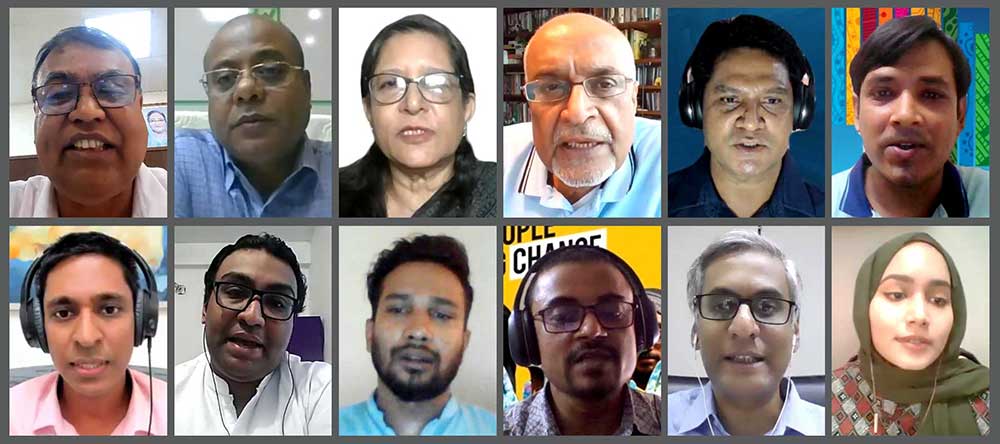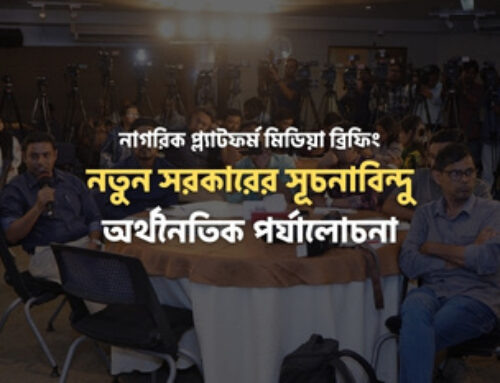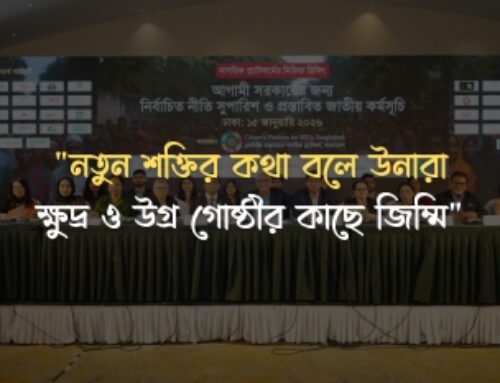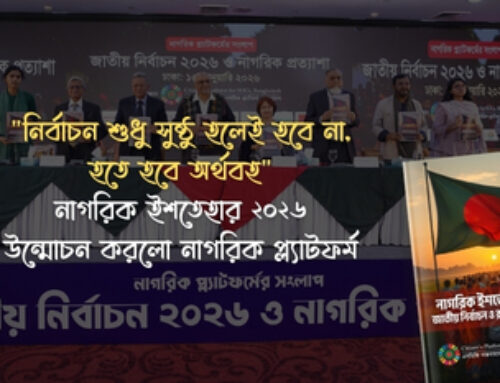Youth make up more than a third of the national population in Bangladesh. The role of the youth has always been highly emphasized since the Sustainable Development Goals (SDG) have been first conceived and Agenda 2030 has been adopted around the globe. Indicators that do not directly refer to the youth also have serious implications for the youth. As a result, it has been assumed that the youth will play a crucial role in the Voluntary National Review (VNR) and other SDG accountability processes. To examine, review and share the experiences of the youth-driven VLRs to promote youth relevant issues and create space for youth participation in development policy in Bangladesh. The core issue to be analyzed is the scope of capacity for involvement of youth in the SDG accountability process in our country.
These observations emerged at the virtual dialogue titled Accountability for SDG Implementation: Local Perspectives and Youth. The dialogue was jointly organised by the Citizen’s Platform for SDGs, Bangladesh and ActionAid Bangladesh which was held on Sunday, 23 May 2021.

On her welcome remark, Ms Farah Kabir, Country Director, ActionAid Bangladesh pointed that the tagline of the 2030 Agenda ‘Leaving No One Behind’ is a passive statement. Thereby, the whole society inclusion should be an important goal that can be done via data and information sharing, capacity building, political commitment, environment, etc. Though Bangladesh prepared two VNRs (in 2017 and 2020 respectively) to assess the implementation status of the SDGs, youth and marginalised communities were not well involved. Thereby, Voluntary Local Reviews (VLRs) needs to be prepared through the district, sub-district and community level, especially young men and young women below the 35 years age group who were left behind lately due to the pandemic.
Ms Najeeba Mohammed Altaf, the researcher of Citizen’s Platform said in keynote presentation, rather than solely focusing on skills for employability, youth-based skills training programs deployed by both government and non-state actors should also involve training to collect data, through modern ICT solutions, relevant to protection of youth’s wellbeing and rights. The youth should be involved beyond passive consultation processes and be encouraged to actively provide inputs to local and national SDG accountability mechanisms. Given the recent proposal brought forward by the General Economic Division (GED), Planning Commission to form the divisional, district, and Upazila level councils for SDG implementation and coordination, there needs to be an assurance of youth representation at each of these levels. The creation of a specific SDG-related and youth-based council can be established as has been seen in Hawaii through the Hawai’i Youth Climate Coalition in 2019.
The Guests of Honour, Mr Md Azharul Islam Khan, Director General, Department of Youth Development, Ministry of Youth and Sports, focused on various initiatives taken by the Department of Youth Development. In the fourth industrial revolution era, e-learning platforms can play a vital role in accountability and engaging youth. In reference with two other discussants regarding the training programmes of youth in our country, Guests of Honour Mr Md Rashedul Islam, Director General, NGO Affairs Bureau, Prime Minister’s Office, also agreed about not having proper impact assessment of those trainings. Smooth implementation of SDGs is very challenging. Proper reporting and impact analysis is lacking; hence other organisations such as ActionAid & Citizen’s Platform should come forward and can work closely with the Government.
Among the 122 indicators of SDG, eight are directly focused on youth employment, various injustice, educational rights etc. Undoubtedly, we need to pay attention to assessment, evaluation, and voice to youth, said Dr Debapriya Bhattacharya, Convenor, Citizen’s Platform for SDGs, Bangladesh, on his closing remarks. He also emphasised on having disaggregated data and mapping when it comes to empower youth locally. Though we have been able to increase dialogue and participation of youth, we lag behind on transparency and accountability.
Dr Ramiz Uddin, Head of Experimentation, Accelerator Lab, UNDP-Bangladesh; Mr Mahmud Hasan, Project Officer, Governance Cluster, United Nations Development Programme (UNDP); Mr Ejaj Ahmad, Founder and President, Bangladesh Youth Leadership Center (BYLC); Mr Amiya Prapan Chakra Borty (Arka), General Secretary & Executive Director, Dhrubotara Youth Development Foundation (DYDF); Mr Shamim Ahmed, Executive Director, Youth Engagement for Sustainability (YES), Bangladesh; and Mr Nazmul Ahsan, Manager – A4I Project, ActionAid Bangladesh joined the virtual dialogue and delivered their remarks as Distinguished Discussants.
The dialogue was also participated by relevant government officials, development activists, experts and academia, representatives from the development partners and media professionals.




